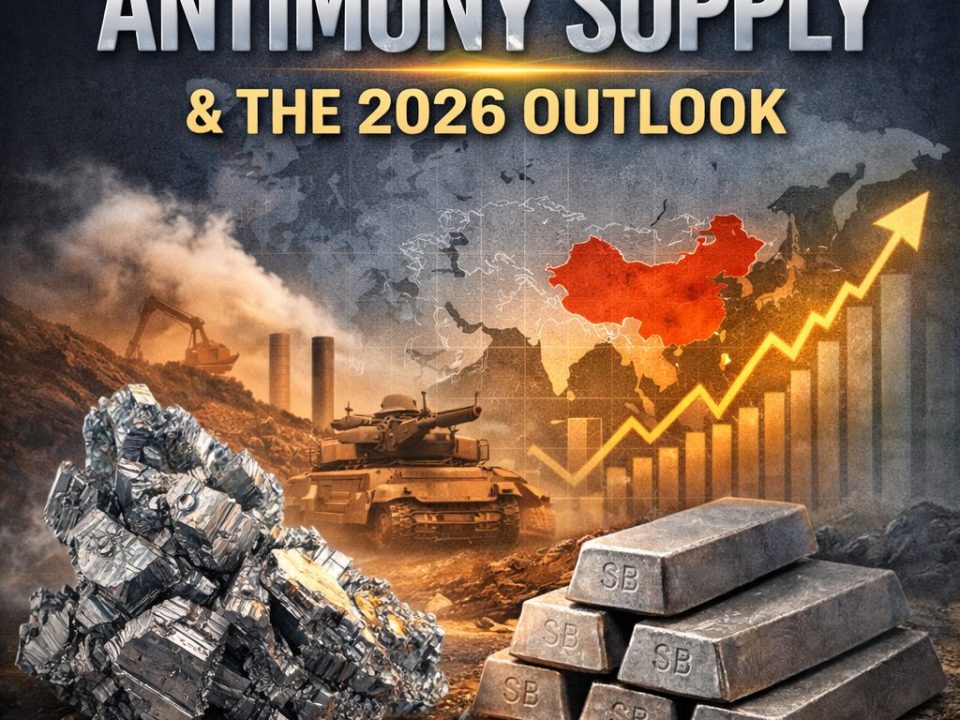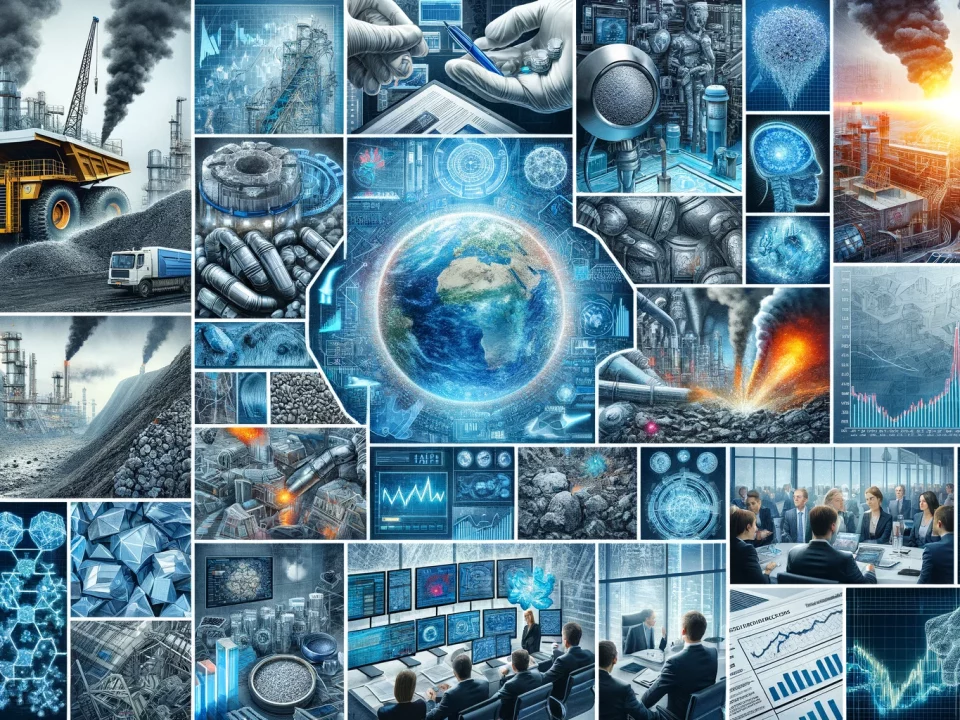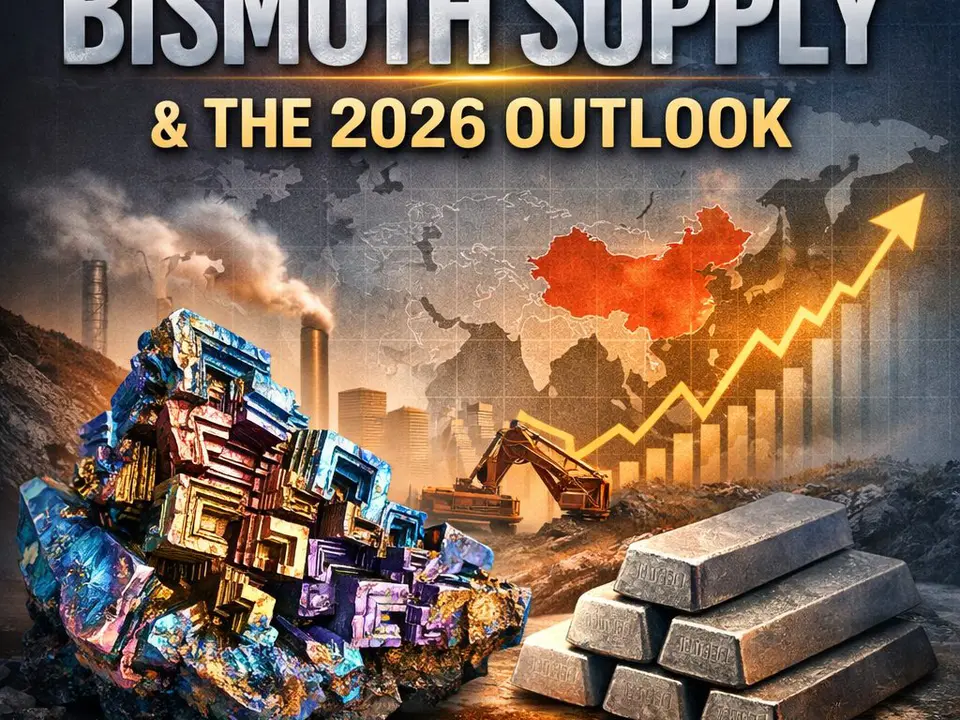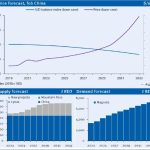
Dysprosium Price Forecast: A Cornerstone for the Green Economy
August 15, 2024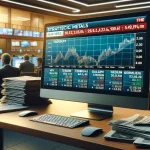
Weekly News Review August 19 – August 25 2024
August 25, 2024Welcome to our weekly news report.
CHINA: FURTHER EXPORT RESTRICTIONS ANNOUNCED –
Antimony and multiple related products are set to join gallium, germanium, and graphite in China’s list of export-controlled goods, the Ministry of Commerce announced Thursday. The People’s Republic imposed restrictions on the three raw materials just over a year ago.
Similar to the announcement in 2023, the move is justified on the grounds of national security, as the listed goods are considered dual-use, meaning they can be used for both civilian and military purposes.
From 15 September, export licenses will be required to ship antimony or antimony-related products abroad. Gallium and germanium took several weeks to process. Consequently, exports from China briefly fell to zero last year and are still recovering. Antimony is an alloy component that hardens soft metals such as lead, copper, tin, and zinc. It is also used in the production of flame retardants.
US AND UKRAINE DISCUSS CLOSER COOPERATION ON STRATEGIC METALS –
Ukraine seeks to attract American businesses.
Last Monday, the Ukraine Ministry of Economy hosted a U.S. delegation to discuss closer cooperation on critical minerals. According to a press release by the ministry, Ukraine seeks to attract American businesses to enter the country’s mineral extraction and processing sectors. The ministry emphasized that Ukraine is rich in minerals and added that other economic sectors could also provide a broad range of investment opportunities.
According to the U.S. Geological Survey, Ukraine was a significant producer of titanium, magnesium, and graphite in 2019. However, the current situation is challenging to assess amidst the war with Russia. According to market intelligence provider Fastmarkets, the Ukrainian industry is experiencing massive challenges.
The Ministry of Economy also added that it would adhere to Minerals Security Partnership (MSP) principles. The MSP is a multilateral association launched in 2022 to strengthen supply chains of critical minerals, comprising 14 states and the European Union as members.
In July, Ukraine and seven other countries joined the Minerals Security Partnership Forum, a platform seeking to connect MSP members with mineral-producing countries to explore mutually beneficial investment and cooperation opportunities.
In 2021, the EU and Ukraine partnered on critical raw materials and batteries. Under the partnership, the two sides continuously explore.
CHINA PUBLISHES GUIDELINES TO ACCELERATE GREEN TRANSITION:
The report was released with a 33-point list to fast-track its transformation and reach a circular economy by 2035.
The Chinese Government published a 33-point list of guidelines on Sunday to accelerate its industry’s green transition and achieve its climate targets. Key provisions include:
- Promoting low-carbon sectors and technologies.
- Encouraging recycling, resource, and energy conservation.
- Scientific and technological innovations.
The overarching goal is the establishment of a circular economy by 2035.As part of this, China aims to reach a 25 percent share of non-fossil fuels in its energy mix by 2030, classified as wind, solar, hydropower, and coastal nuclear energy sources. The guidelines also support novel sources such as biomass and geothermal energy. The state-affiliated Global Times highlighted that this aligns with President Xi Jinping’s 2020 proposal to reach peak carbon dioxide emissions by 2030 and carbon neutrality by 2060.
The guidelines are not only focused on China itself but also aim to promote international cooperation in the area. Investments, trade, green technologies, scientific exchanges, and other bilateral and multilateral cooperations will be intensified.
EUROPE: NORRA KÄRR PROJECT IN SWEDEN SUBMITS APPLICATION – DESPITE LOCAL RESISTANCE.
The Norra Kärr deposit has a high concentration of heavy rare earths, mined almost exclusively in Myanmar and southern China.
However, the local population has been resistant to the development of the deposit for a decade, as it is located near a lake important for the region’s drinking water supply. As a result, no mining has taken place on-site to date.
Despite this, the owner of Norra Kärr, the Canadian mining company Leading Edge Materials, has applied for recognition as a strategic project under the Critical Raw Materials Act.
This legislation is intended to diversify the supply of raw materials in the European Union. Strategic projects benefit from an accelerated approval process, which, according to the legislators’ wishes, should only take a maximum of 27 months for mining projects. Leading Edge Materials also intends to apply for a mining concession in the fourth quarter.
The EU Commission will publish an initial list of projects classified as strategic in December.
Norra Kärr is an eudialyte deposit. This mineral contains a high proportion of heavy rare earths, but the concentration of raw materials in eudialytes is comparatively low. Extraction is complex and still the subject of research projects.
CANADA RAMPS UP INVESTMENTS IN STRATEGIC METALS:
Saskatchewan in Western Canada is known for its mining industry and mineral deposits.
The Canadian Government announced Wednesday that it will allocate $11.7 million to the Saskatchewan Research Council (SRC) to establish and advance rare earth processing technologies. The SRC will use the majority of the capital to acquire bastnaesite from Vital Metals’ Nechalacho mine, a rare earth element-containing ore.
Another major mine that extracts rare earths from this type of ore is the Mountain Pass mine in the U.S., operated by MP Materials. Vital Metals made headlines in the last months when it first shelved constructing a rare earth processing facility and announced selling its entire mined raw material to a Chinese company.
However, the Canadian Government allegedly intervened to keep the material within its borders (we reported). Instead, the $2 million worth of raw material was also sold to the SRC.
The organization is building a rare earth processing facility in Saskatoon, the largest city in Saskatchewan. The SRC will extract mixed rare earth oxides from the acquired bastnaesite and refine them into individual rare earth oxides and, finally, metals.
In addition to rare earths, the government funding includes capital for the SRC to create a publicly accessible database of mineral characteristics and training programs for Indigenous students.
NO ENERGY TRANSITION WITHOUT CHINA?
Copper is essential for a successful energy transition, and the raw material is mainly processed in China.
Copper has been used for thousands of years, but the emerging demand from the energy transition will dwarf previous developments. According to a study by the University of Michigan and Cornell University, more metal will have to be mined between 2018 and 2050 than in the entire history of humanity. Copper is needed not only for electrical cables, motors, and generators but also for battery storage. Unsurprisingly, raw materials are on the European Union’s list of strategic raw materials. The Critical Raw Materials Act will introduce quotas for the extraction and processing of these raw materials in the EU to reduce dependence on imports – primarily from China.
The United States Inflation Reduction Act (IRA) represents a similar approach, which the analysis firm Wood Mackenzie views critically. With China, the energy transition is possible, according to a new study by the company, which specializes in data relating to the energy transition. According to data from the U.S. Geological Survey (USGS), the People’s Republic is only the fourth largest copper producer globally and imports vast quantities of the metal itself. Still, its strength lies primarily in processing the ore. According to the USGS, China accounted for around half of refined metal production in 2023. According to Wood Mackenzie, China has accounted for 75% of global growth in smelting capacity since 2000.
But what would it cost to replace this capacity? The authors of the study put this at around $85 billion. This is not likely, as little has happened outside China in terms of smelting in recent years. Even if financial resources are available, resistance to such projects is expected to form due to environmental concerns.
Energy Transition More Expensive and Slower Without China’s Raw Material Capacities –
The study concludes that China’s enormous investments in the downstream processing and semi-manufacturing sectors present the biggest challenge to the supply security agenda. This applies to copper and rare earth or lithium, which is processed locally into batteries for electric cars, among other things.
Given this situation, Wood Mackenzie believes the only solution is a willingness to compromise and increased pragmatism. Otherwise, the energy transition would slow down significantly and, above all, become much more expensive.
Meanwhile, copper is a raw material essential for climate-neutral technologies, and China dominates its processing. In addition to rare earths, lithium is also processed locally into batteries for electric cars, among other things.




